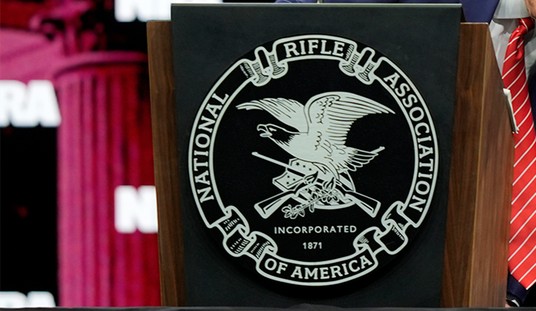Politicians love to talk about problems. In fact, I’d argue they like to talk about issues far more than they like to do anything about them. Talking is easy, after all. Action is tough. People expect results from actions. Words not so much.
So it’s no surprise that Illinois State Sen. Adriane Johnson put together a “gun violence roundtable” recently featuring herself and several other elected officials and activists to talk about what can be done to reduce the violence in the Chicagoland area. And given the anti-gun attitudes of Johnson, it’s also not a shock that the roundtable apparently wasn’t big enough to include anyone with a pro-Second Amendment perspective.
Johnson cited a statistic that 26,000 lives have been lost in the U.S. so far this year due to guns. Some of the factors cited by the panelists were familiar ones — gangs, poverty, straw purchases that put guns in the wrong hands and mental health issues — but are protracted problems that defy simple solutions.
“The problem is generational and systemic, and it can’t be solved through law enforcement only,” Pike said.
In the question-and-answer section, a Waukegan resident asked why the roundtable did not feature anyone with a “pro-2nd Amendment position.” Johnson said she did not take issue with lawful gun ownership. [State Rep.Rita] Mayfield, though, said gun groups have opposed legislation that she said attempts to keep firearms out of the wrong hands.
Johnson may not take issue with lawful gun ownership, but she sure didn’t seem interested in hearing from any lawful gun owners who believe that gun control isn’t the right way to address violent crime in the Chicagoland area. As for Mayfield’s assertion that gun groups have opposed bills that “keep firearms out of the wrong hands,” I’d argue that Second Amendment supporters oppose legislation that treats responsible gun owners as criminals themselves, bills that criminalize the right to keep and bear arms, and measures that focus more on preventing gun ownership than combatting violent crime.
That doesn’t mean we can’t find areas of agreement, especially on those tools and programs that seek to reduce violent crime, not through gun and magazine bans or things like waiting periods and gun permits, but by targeting the small number of individuals who are most likely to both commit and become the victim of violent crimes.
I would also argue that having at least one person with a pro-Second Amendment perspective at the roundtable could have helped these lawmakers view the issue of violent crime from a different perspective. I’m pretty sure that gun control activists and Second Amendment supporters would offer very different solutions to this aspect of the city’s violent crime problem, for instance.
A convicted felon who posted $200 to get out of jail for his third illegal firearm case was one of two gunmen in a mass shooting that injured five people in Gresham last month, prosecutors said Wednesday.
Devon Harding is now the 33rd person accused of killing, trying to kill, or shooting someone in Chicago this year while awaiting trial for another felony.
Last April, prosecutors charged Harding with felony unlawful use of a weapon by a felon, and he went home by posting the $200 deposit, court records show. According to CPD records, officers last April arrested Harding in connection with a different murder investigation, but he was never charged with the killing.
Shortly after noon on July 14, while still on bail for the pending gun case, Harding and another gunman pulled up to the 7900 block of South Justine, got out of their car, and opened fire on a group of people who were standing on the street, according to police and prosecutors.
Most gun control activists would look at this and proclaim that the problem is that there are too many guns, which is why we need to pass all kinds of restrictions in the hopes that they would prevent a guy like Devon Harding from repeatedly illegally acquiring them.
A Second Amendment supporter, on the other hand, might point out that Illinois already requires a state permit in order to own a gun, that most criminals don’t get their guns from legal sources to begin with, and that the bigger issue is a criminal justice system that refuses to take recidivism and the threat to public safety seriously by releasing felons accused of illegally possessing a firearm (a federal offense punishable by up to ten years in prison as well as a crime under Illinois law) as long as they can cough up $200 and promise to show up for their court date.
Seems to me like that would make for a pretty interesting roundtable discussion. In fact, as a Second Amendment supporter I’d love to take part in a real conversation about ways to address violent crime, and I know plenty of Illinois gun owners who feel the same way. Gun control activists don’t want 2A types to have a seat at the table, not the other way around. The city of Chicago has tried the gun control way to safety for decades now, however, and a new perspective might yield better results than the status quo.









